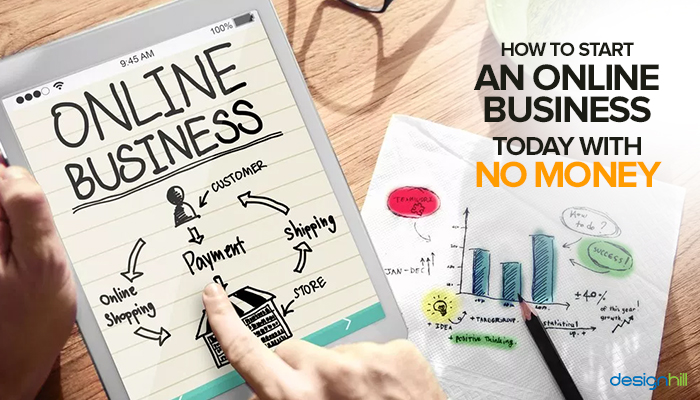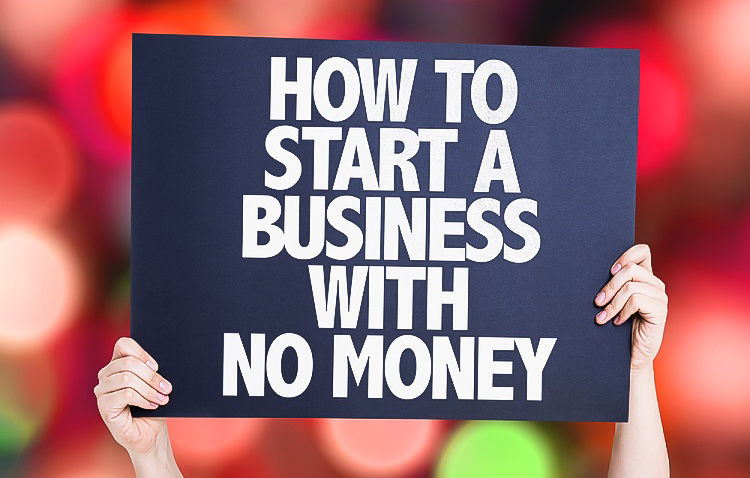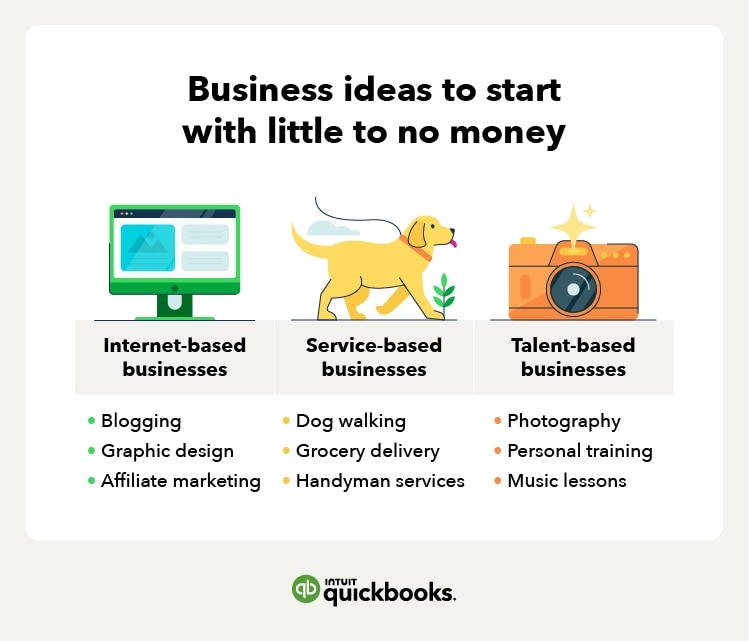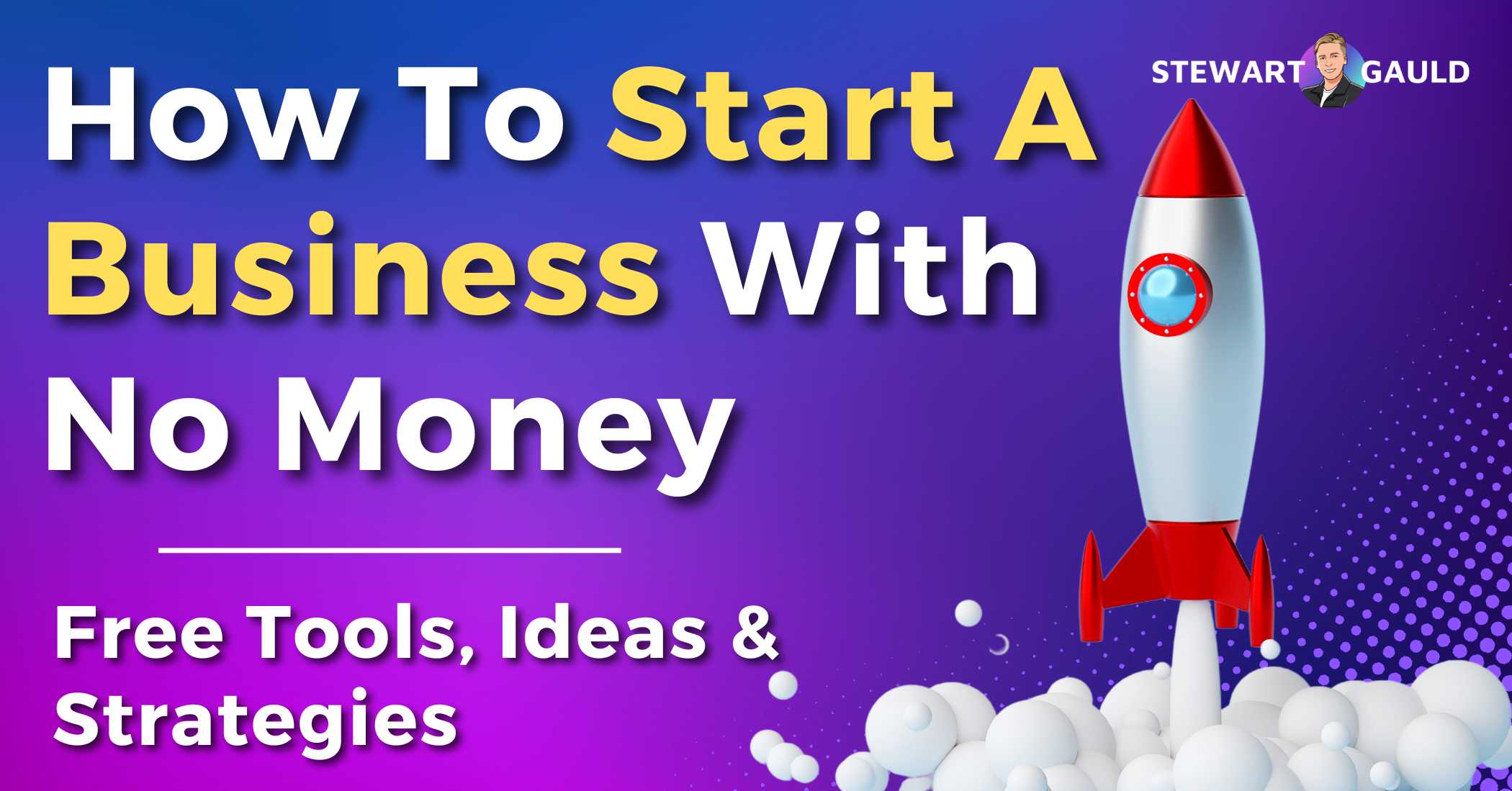How To Start A Small Business With No Money

The allure of entrepreneurship is powerful, promising independence and financial freedom. But the common perception is that starting a business requires substantial capital, a barrier that keeps many aspiring entrepreneurs on the sidelines. However, the reality is that launching a successful small business with little to no money is entirely possible, demanding resourcefulness, creativity, and a willingness to embrace unconventional strategies.
This article explores practical approaches to starting a business on a shoestring budget. It delves into strategies like leveraging free resources, offering services instead of products, utilizing crowdfunding, and focusing on sweat equity. We aim to provide a realistic roadmap for aspiring entrepreneurs to transform their ideas into thriving businesses, regardless of their financial starting point.
Leveraging Free Resources and Skills
One of the first steps in starting a business with no money is to identify and leverage free resources. Many organizations and government agencies offer free business planning resources, mentorship programs, and online courses. For example, the Small Business Administration (SBA) provides numerous resources and counseling services to aspiring entrepreneurs.
Utilize your existing skills. Consider what you're good at and how you can turn that into a service you can offer. This could be anything from freelance writing and graphic design to tutoring or consulting, all requiring minimal upfront investment.
Networking is crucial. Attend industry events, join online communities, and connect with other entrepreneurs. Building relationships can open doors to partnerships, collaborations, and even funding opportunities.
The Power of Service-Based Businesses
Service-based businesses are often ideal for starting with limited capital. Unlike product-based businesses that require inventory investment, service-based businesses rely on expertise and time.
Consider offering services like social media management, virtual assistance, or website design. These services require minimal overhead and can generate revenue quickly.
Focus on building a strong online presence through a free website or social media platforms. Word-of-mouth marketing and referrals can be powerful tools for growing your client base organically.
Embracing the Gig Economy
The gig economy provides numerous opportunities to earn money and gain experience while building your own business. Platforms like Upwork and Fiverr connect freelancers with clients seeking various services.
Use these platforms to hone your skills, build a portfolio, and establish a reputation. The income earned can be reinvested into your business or used to cover essential expenses.
Remember to treat your freelance work as a stepping stone. It allows you to validate your business idea and build a client base before fully committing to your own venture.
Crowdfunding: Tapping into Collective Support
Crowdfunding platforms like Kickstarter and Indiegogo offer a way to raise capital from a large number of people. This approach involves presenting your business idea and offering rewards or incentives in exchange for donations.
A successful crowdfunding campaign requires careful planning and execution. Clearly define your business goals, create a compelling pitch, and offer attractive rewards to potential backers.
Remember that crowdfunding is not just about raising money; it's also about building awareness and generating buzz around your business. Engage with your backers and keep them updated on your progress.
Sweat Equity: Investing Your Time and Effort
When capital is scarce, sweat equity becomes your most valuable asset. This involves dedicating your time and effort to building your business from the ground up.
This can include everything from developing your product or service to marketing your business and managing day-to-day operations. Be prepared to work long hours and make sacrifices.
Sweat equity not only saves money but also fosters a deep sense of ownership and commitment to your business's success. This dedication is often a key ingredient in overcoming the initial challenges of starting a business.
Bartering and Trade: Exchanging Services for Value
Consider bartering your skills or services for things you need for your business. This could involve exchanging web design services for office space or social media management for legal advice.
Bartering can be a win-win situation for both parties. It allows you to acquire essential resources without spending money, while the other party receives valuable services in return.
Establish clear agreements and define the value of the services being exchanged. This will help prevent misunderstandings and ensure a fair and mutually beneficial arrangement.
Looking Ahead: Sustainable Growth and Scalability
Starting a business with no money requires a strategic approach to growth and scalability. Focus on generating revenue quickly and reinvesting profits back into the business.
Consider bootstrapping your growth by reinvesting profits rather than seeking external funding early on. This allows you to maintain control of your business and avoid diluting your ownership.
As your business grows, continuously seek out new opportunities to improve efficiency and streamline operations. By embracing innovation and adapting to change, you can build a sustainable and thriving business, even if you started with nothing but an idea and a lot of determination. Starting with limited resources forces entrepreneurs to be creative, resourceful, and focused, often leading to more sustainable and innovative business models in the long run, a fact supported by numerous studies on lean startups.







![How To Start A Small Business With No Money 8 Steps To Start A Business With No Money [INFOGRAPHIC]](https://i0.wp.com/www.tycoonstory.com/wp-content/uploads/2022/07/8-Steps-To-Start-A-Business-With-No-Money-Tycoonstory-1.jpg?ssl=1)










